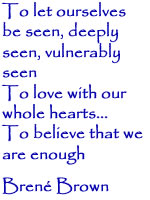Whether you are in a long-term relationship that is going through difficulties, or you are struggling to build or commit to a new relationship, or you just don't know what you want, past learned patterns can get in the way of your relationships.
It is always important to understand yourself and what you want and need, and to approach yourself with understanding and acceptance, so you feel confident about your value in any relationship, and so you can offer the same to your partner.
Sometimes you also need to understand what was modelled to you in childhood, or what you have learnt in your history of relationships, and whether that is useful or helpful to you now. You may need to re-examine your deeply held beliefs about yourself and about relationships in order to make sense of your current relationship and how to make it work, and also to understand what it is you really want.
1. Five on five.
Begin the practice of sitting facing each other, looking at each other, and talking to each other, at least once a week, or even more often. Each person gets to speak for five minutes, without interruption, about how they are feeling, about the relationship and how things are going, about themselves. The second person does the same, either responding to what the person has said, or not. The next time the order is reversed. This is not about critising, or a dialogue, but articulating your own experience, and really listening to each other. This helps you stay out of the defending, combative mode, and puts your focus on listening to how it is for the other. Do not do this if you feel in any way unsafe in your relationship.
2. Notice your actual responses.
Whenever you are going to see your partner, make a note of how you feel out of ten, where 10 is blissfully happy, and 0 is anxious, unhappy and apprehensive. After you have spent time with them, note again how you are feeling. Notice if seeing them improves or lowers how you feel. What do you make of this?
3. History of relationships.
Write a very short history of your relationships. What attracted you to each partner, what was good and not so good in each relationship. How you felt about yourself in each relationship and how you felt about them. How each relationship ended and why. Notice any patterns.
Attachment By Amir Levine, M.D and Rachel S.F. Heller, M.A. This book guides you to understand what your attachment style might be and how to work with this to build stronger, more fulfilling relationships.
Platonic:How the Science of Attachment Can Help You. By Dr. Marisa G. Franco. While this is an engaging guide to how attachment styles impact making and maintaining friendships, it's still a useful way to understand how you navigate all your relationships.



